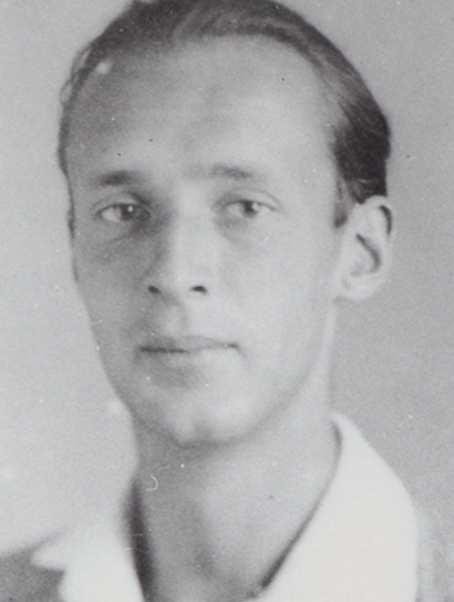On this date in 1899, novelist and poet Vladimir Vladimirovich Nabokov was born in St. Petersburg, Russia, to Yelena Ivanovna (née Rukavishnikova) and Vladimir Dmitrievich Nabokov, both wealthy and socially prominent. He had four younger siblings, one of whom died in a Nazi concentration camp in 1945 for denouncing Hitler.
The family was nominally Russian Orthodox but lacked religious fervor and Nabokov stopped attending church. Of his mother he would later write: “Her intense and pure religiousness took the form of her having equal faith in the existence of another world and in the impossibility of comprehending it in terms of earthly life.” (“Speak, Memory: A Memoir,” 1951)
English, French and Russian were spoken in the household and Nabokov first learned to read and write in English, disappointing his patriotic father. He published a book of poems in Russian at age 17. During the political ferment of the revolution, the family fled to Crimea and then to England, where Nabokov earned a degree at Trinity College-Cambridge in 1922.
He then joined his family in Berlin, where his father, a political liberal who had started an émigré newspaper in 1920, would die two years later in an assassination attempt by Russian monarchists on government-in-exile leader Pavel Milyukov. Nabokov would draw on his father’s death repeatedly in his fiction.
He stayed in Berlin for 15 years, supplementing his meager writing income by teaching languages, tennis and boxing. He married Véra Evseyevna Slonim, a Russian-Jewish woman, in 1925. Their only child, Dmitri, was born in 1934. He wrote nine novels in Russian, and his final work of Russian fiction, the novella “The Enchanter,” was written in Paris in 1939.
They fled to the U.S. in 1940 and Nabokov joined the faculty of Wellesley College as a lecturer in comparative literature. The position included free time to write creatively and pursue his academic interest in lepidoptery (moths and butterflies). He founded Wellesley’s Russian department and became a naturalized U.S. citizen. He left Massachusetts in 1948 to teach Russian and European literature at Cornell University in Ithaca, N.Y., where he taught until 1959. Among his Cornell students was future U.S. Supreme Court Justice Ruth Bader Ginsburg.
He published steadily and was a substantial force in the literary world until 1955, when his controversial best-selling novel “Lolita” moved him from newspapers’ books pages to front pages. Ranked fourth on the Modern Library’s list of 100 Best Novels in 2007, it detailed the purported memoir of middle-aged literature professor Humbert Humbert (a pseudonym), who is sexually obsessed with “nymphets,” in particular the 12-year-old Dolores Haze. He marries Dolores’ mother Charlotte and seduces her after Charlotte dies in an accident and Dolores tells him she had sex with an older boy at camp the previous summer.
“And what is most singular is that she, this Lolita, my Lolita, has individualized the writer’s ancient lust, so that above and over everything there is — Lolita,” Humbert writes. In a 1974 analysis, Donald E. Morton wrote: “What makes ‘Lolita’ something more … is the truly shocking fact that Humbert Humbert is a genius who, through the power of his artistry, actually persuades the reader that his memoir is a love story.”
Frederic Babcock, Chicago Tribune books editor, wrote in 1958: “Lolita is pornography, and we do not plan to review it.” Writer Joyce Carol Oates judged it as “one of our finest American novels, a triumph of style and vision, an unforgettable work, Nabokov’s best (though not most characteristic) work, a wedding of Swiftian satirical vigor with the kind of minute, loving patience that belongs to a man infatuated with the visual mysteries of the world.” (Oates in the Saturday Review of the Arts, January 1973)
“Lolita” made Nabokov wealthy and spawned several adaptations on stage and screen, including operas and ballets. Stanley Kubrick directed the first film version (1962), starring James Mason as Humbert and Sue Lyon, 14 at the time, as Lolita.
Nabokov and Véra had moved in 1961 to the Montreux Palace Hotel in Switzerland, where he continued to write and collect butterflies and lived till the end of his life at age 78 in 1977. His last novel was “Look at the Harlequins!” in 1974.
“I don’t belong to any club or group,” he wrote in “Strong Opinions” (1973). “I don’t fish, cook, dance, endorse books, sign books, co-sign declarations, eat oysters, get drunk, go to church, go to analysts, or take part in demonstrations.” According to Donald Morton, “Nabokov is a self-affirmed agnostic in matters religious, political, and philosophical.” (D. 1977)
PHOTO: Nabokov in Berlin in the 1920s.


